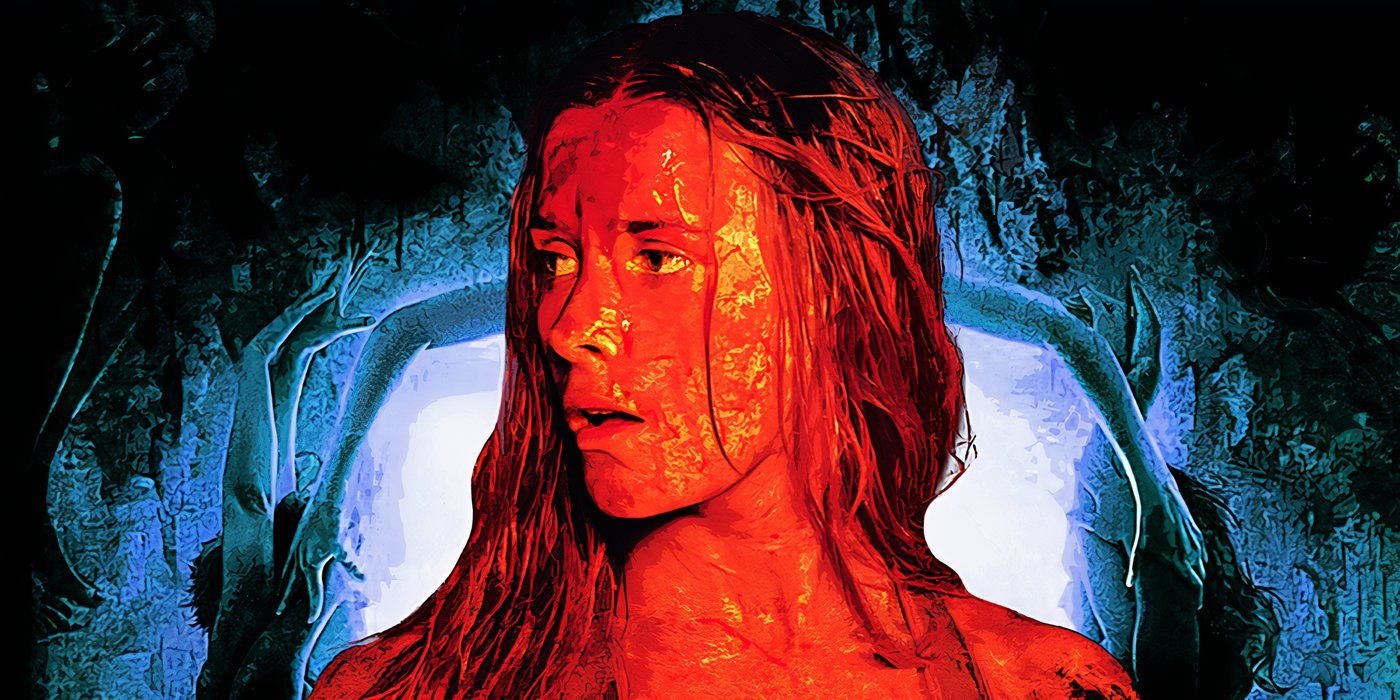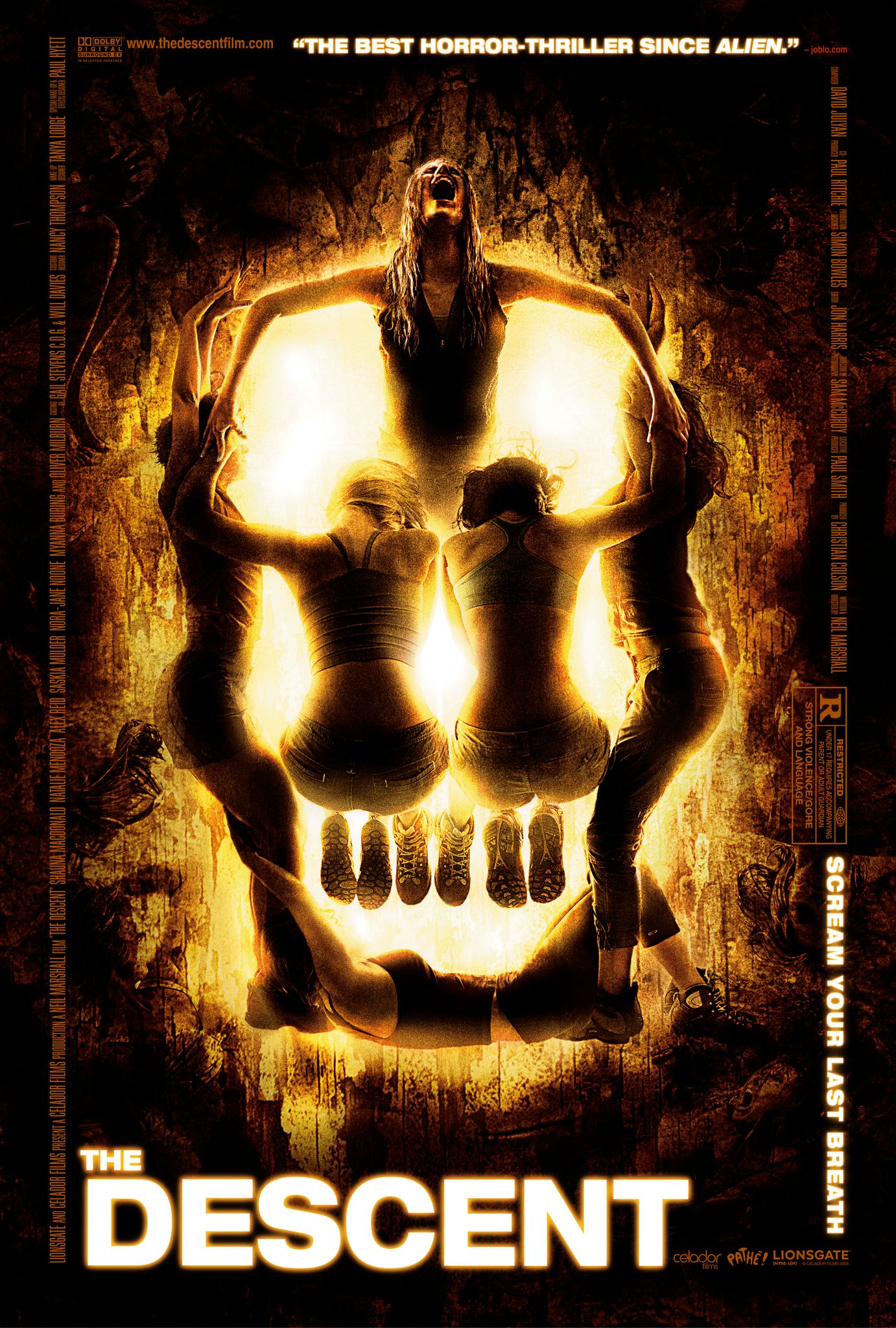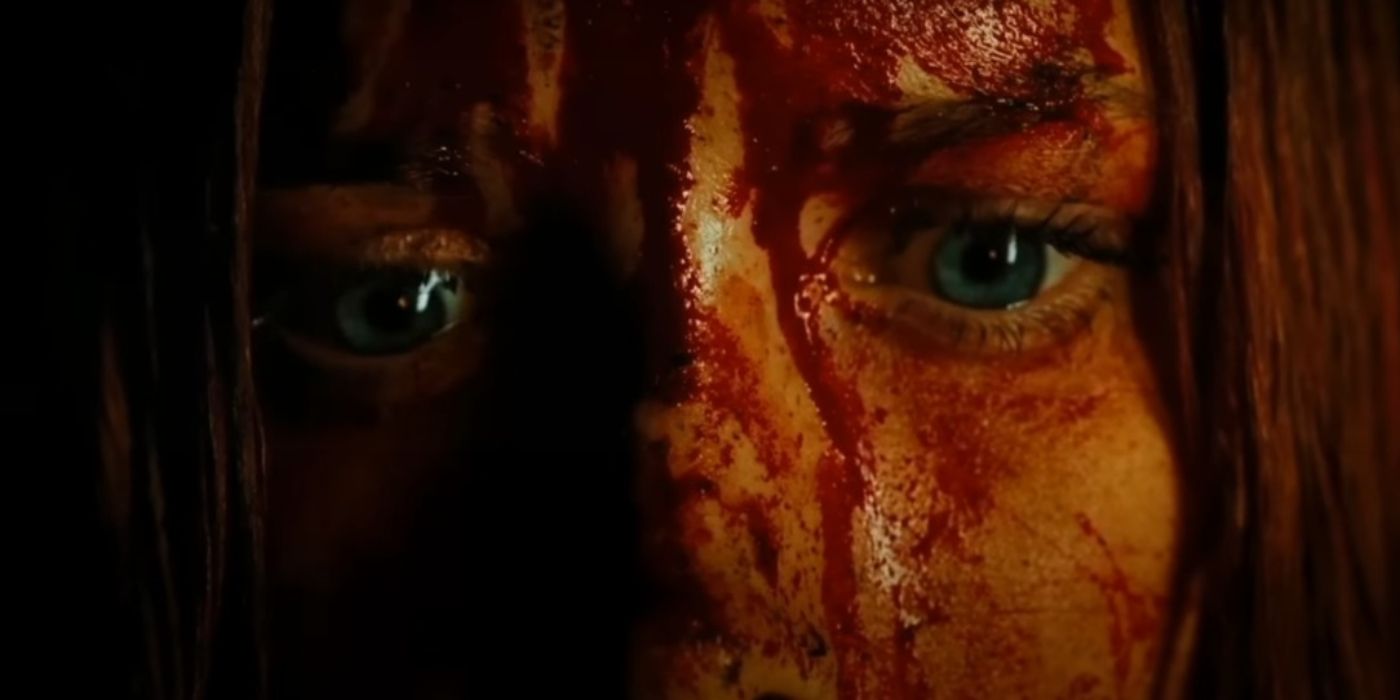The Big Picture
-
The Descent
is an incredibly effective horror film that taps into real and common fears, making it deeply personal and unsettling. - The film sets up a hopeless situation with claustrophobic cave settings, creating a suffocating and terrifying atmosphere.
- The ending of
The Descent
is grim, reinforcing the sense of hopelessness that lingers throughout the film by giving viewers a fake-out ending.
Ever want to scare the pants off of somebody but don’t know what horror film will do it best? When it comes to horror, many different aspects of the genre can create both fear and tension for a viewer. Sometimes it’s paranormal, sometimes it’s cheesy slasher films, or maybe it’s cheap jump-scares. These are always a tried and true staple. But when it comes to really scaring an audience, really getting under their skin, there’s one movie that does it best: The Descent.
Released in 2005, The Descent follows a group of friends on a spelunking trip, a year after tragedy strikes one of them. What they find inside is more than just mesmerizing cave systems though, and they soon find themselves in a fight for their lives against the cave’s monstrous dwellers. The film acts as a slow burn for the first hour or so into its run, really building up the suspense until the first crawler (as the monsters have been deemed) shows up. The crawlers are downright nasty, pale, and vampiric in appearance, with human-like figures but inhuman tendencies. They have a taste for blood and flesh and hunt down each of the women one by one, lingering in the shadows ready to pounce at any moment. But it isn’t just the crawlers that make The Descent such a great horror film, in fact, it may not even be the top reason. What makes The Descent so effective is how it taps into very real and common fears, and creates a deeply personal film that is bound to make audiences squirm.
What Is ‘The Descent’ About?
The movie begins by introducing us to a few of the characters we’ll be following throughout the film. There’s Sarah (Shauna Macdonald), Juno (Natalie Mendoza), and Beth (Alex Reid). The friends are thrill seekers and are just coming to shore from whitewater rafting. They’re greeted by Sarah’s husband Paul (Oliver Milburn) and their daughter Jessica (Molly Kayll). On the way home, Sarah notes Paul’s quietness and asks him what’s wrong. He tells her it’s nothing, which we (and Sarah) can tell is a lie, but before she can press on their car is suddenly hit by another vehicle. The accident claims the lives of both Paul and Jessica, leaving Sarah the only survivor with an unimaginable amount of pain and guilt over the losses.
Though it’s inevitable, the fear of losing someone you love is a very real and very daunting thought. The Descent took that fear and had it kick off the movie, setting a dreary and depressing tone that would only worsen as the film went on. After all, the rest of the film is set only a year after the accident, meaning it’s still a very fresh wound. Throughout the film, Sarah often hears the sound of a child’s laughter, or hallucinates her daughter while in the caves. So not only is she in a fight for her life, but while stuck in a seemingly hopeless situation, Sarah is dealing with grief that feels impossible to overcome. Her best friend Beth even says as much, encouraging Sarah to push through when she gets stuck in the cave, saying: “The worst thing that could have happened to you has already happened.” But though that’s vehemently true, it doesn’t deter the film from doubling down on Sarah’s trauma.
‘The Descent’ Sets Up a Hopeless Situation
As mentioned, the crawlers may be the selling point for the horror of the film, but the true horror comes long before the crawlers even appear on the screen. The aforementioned group of friends (joined by some newcomers) convene at a cabin in the Appalachian mountains, where they plan to embark on a spelunking adventure. The group hikes up a mountain to a cave entrance and make their descent. Spelunking in general is quite a scary activity, even when you’re with trained professionals in caves that have been explored hundreds of thousands of times. So when the group has to navigate through small passages, it feels incredibly daunting — even more so when the passage collapses behind them and traps them. But unlike a guided spelunking trip, these women are doing this all on their own, and unbeknownst to them Juno has brought them to a never-before explored cave. They have no map, are down a bag of supplies due to the tunnel collapse, and any hope of help and rescue of any kind quickly begins to dwindle. They continue to explore the cave, figuring if they keep pushing through they’ll have to find an exit somewhere. But the cave system proves to be increasingly dangerous, with caverns, holes, and impossible-to-cross passages at every turn.
Claustrophobia is one of the most common fears among humans — it’s the fear of small or enclosed spaces. The Descent is basically just Claustrophobia: The Movie, and though we obviously know the caves featured in the film are just sets, they feel far too real. The result is a suffocating, horrifying, hopeless ride of terror that just never seems to let up. Even when there isn’t a cave monster on screen, we still have to watch our heroines navigate a seemingly hopeless situation. They still have to find an exit somehow, while balancing across crumbly cliffs and squirming through the smallest of spaces.
But the claustrophobic aspect isn’t the only thing adding to the horror ambiance; there’s also the fact that the group is working with minimal light, making the already unknown cave all the more daunting. They each have headlamps, and at one point they use flares to light the cave. But the most prominent use is a Glowstick, which paints much of the scenes in an eerie green color that makes it feel like it’s shot in night vision. Speaking of which, there are also some excellent shots through a video camera, which is used to create an excellent jump scare when the first crawler appears to the group. The dark is yet another common fear, something we all once feared as children, and some as adults too. But the dark mixed with the tight, enclosed space of an unknown cave? It’s a perfect recipe to really make your spine tingle.
‘The Descent’s Nightmare Never Ends
An honorable mention for what makes the film so scary, is how it plays with the delusion and hysteria that someone would face in this situation. Sarah kinda serves as the audience self-insert. She’s the main character, she’s the one we sympathize with, and we’re rooting for her to make it out alive. So when she spots a ray of light in the distance, we rejoice; she’s going to make it, and she’s going to be just fine. She scrambles up a hill of skulls and bones and pops her head out of a hole, breathing in fresh air and bathing in sunlight. Or at least, that’s how the US release version of the film ends.
The ending of the original UK release is much more grim and doubles down on the hopelessness we’ve felt throughout the entirety of the film. In this ending, everything plays out the exact same as the US ending, but it’s then revealed that it was all a hallucination. She never escaped the cave, and we watch as she hallucinates her daughter blowing out the candles on a birthday cake. Only this is a hallucination as well; her daughter isn’t there and the candles in question are actually her torch. As the camera pans out we see nothing but darkness surrounding Sarah and hear the sounds of the cave dwellers closing in.
The Descent is truly a master at boggling the mind and senses. It manages to dig deep under your skin without having to rely on its monsters. Sure they’re scary and grotesque, but the true horror comes from the personal aspects that are grounded in real-life. It’s what makes the film so effective and why its scare factor never dulls upon a rewatch. And it’s why The Descent is one of the greatest horror films in recent years.
The Descent is available to stream on Prime Video in the U.S.
























































![Key Metrics for Social Media Marketing [Infographic] Key Metrics for Social Media Marketing [Infographic]](https://www.socialmediatoday.com/imgproxy/nP1lliSbrTbUmhFV6RdAz9qJZFvsstq3IG6orLUMMls/g:ce/rs:fit:770:435/bG9jYWw6Ly8vZGl2ZWltYWdlL3NvY2lhbF9tZWRpYV9yb2lfaW5vZ3JhcGhpYzIucG5n.webp)




















